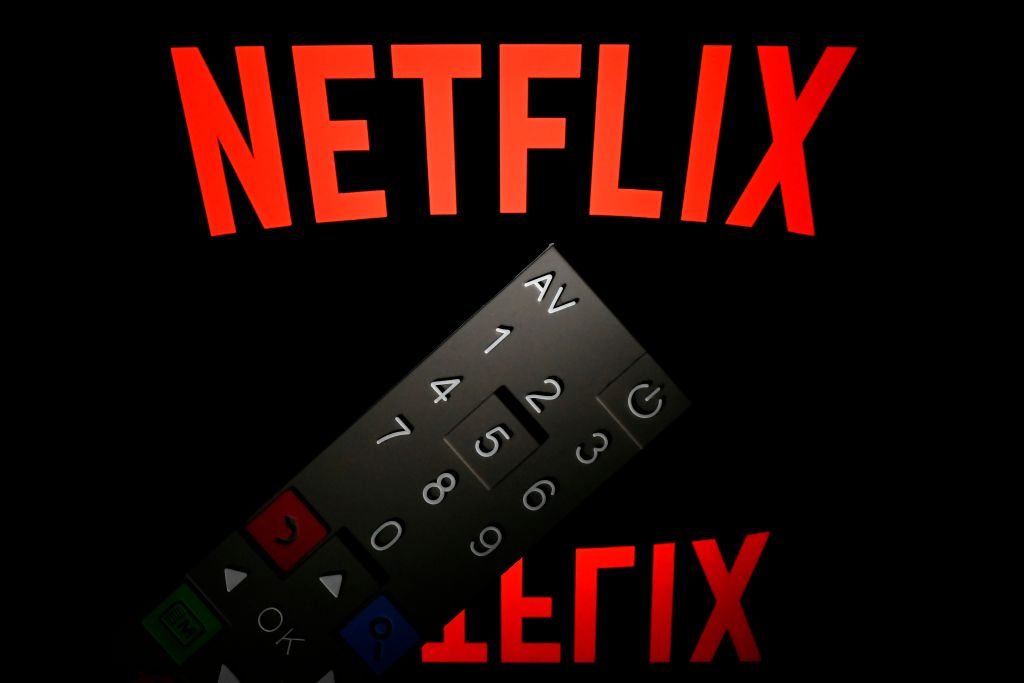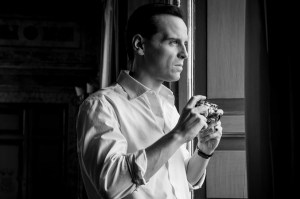Comedy has been absorbed into Twitter’s zeitgeist tornado: a whirling panopticon inhabited by 23 percent of the most humorless and opinionated denizens of the internet (and the top 25 percent of them produce almost all the tweets, according to a study by Pew Research Center). Twitter’s superusers are journalists who have never left the eye of the storm; Twitter has become their “ultimate editor.” It has what the New York Times calls an “outsized role in shaping narratives around the world.” But what kind of comedy clicks for these dopamine-addicted trend chasers?
Hollywood’s gold standard for infiltrating the Twitter zeitgeist is HBO’s Euphoria: a chaotic portrait of high school and the most tweeted-about show of the past decade — a meme factory of violence, sex and melodrama. Hollywood marketing agencies earn their retainers by demonstrating how shows like Euphoria draw ratings because of social media buzz. If you’re trying to monopolize comedy under one umbrella, wouldn’t it make sense to platform comedians who can create Euphoria-level buzz? It’s just one hypothesis, but it tracks, especially for a data-driven streamer like Netflix, which produces and recommends content based on data, algorithms, and social-media buzz, specifically on Twitter.
Viral memes like “Netflix and chill” exploded on Twitter in 2015, which became a pivotal year in Netflix’s turn toward producing what Harper’s described as “social media-friendly hits.” In 2016, Twitter collided with stand-up when Ali Wong’s Baby Cobra turned Netflix into a platform for the comedian-as-influencer. Wong’s hour-long special plugged itself right into the culture wars. The New Yorker said Wong addressed the “taboo of female sexuality.” Paste said she was taking a “rather un-feminist position, though probably not an unpopular one” when she mocked Sheryl Sandberg’s girl-boss manifesto Lean In: “I don’t wanna lean in, I wanna lie down. I want to lie the fuck down! I think feminism is the worst thing that ever happened to women. Our job used to be no job.” Wong filmed the special when she was seven months pregnant, wearing a skintight dress. “I had no idea how many people had even watched it because Netflix doesn’t release any of its metrics,” Wong said in 2019. “And then Halloween came around, and somehow my $8 H&M dress and I had become a Halloween costume.”
While Netflix has not released data for Baby Cobra, or how much they paid Wong (the streamer has paid between $50,000 and $20 million), the memes, positive media coverage and engagement on the app turned Netflix into the streaming-era equivalent of The Tonight Show, when a thumbs-up or “OK” sign from Johnny Carson would turn a comic into a star. “If you had shown an interest in stand-up at all in the past, Wong and her baby bump would be suggested to you every time you signed on [to Netflix],” analyzed Vulture in 2017. The suggestion model was adapting to algorithm-friendly comedy. By 2017, Netflix was releasing a special per week. HBO and Comedy Central — previously the industry leaders — were like clunky PCs when the first sleek MacBook left the assembly line. “Most networks known for comedy specials have almost entirely given up on their stand-up agenda,” says Barry Katz, a producer and manager who’s repped Dave Chappelle, Bill Burr, Whitney Cummings and Bert Kreischer (who have all had Netflix specials).
Katz also notes that Netflix’s preference for topical commentary has marginalized certain types of comics: “Netflix’s choice is to work with stand-ups who are more in line with modern-day philosophers than modern-day entertainers,” says Katz, focusing on the comics with the biggest specials. “What Netflix has done is create a world where one form of comedy is now the stand-up of choice and the stand-up associated with excellence.” Impressionists, prop comics, ventriloquists, satirical characters, joke writers, physical comedians and TikTok comedians who don’t participate in the culture wars have been downgraded by Netflix, which has also overlooked Gen Z. “I don’t associate Netflix with comedy, I associate podcasts with comedy,” says Jules Terpak, who covers internet culture on a TikTok account with over 292,000 followers. Netflix seems to be saturating the market with comics who are on opposite sides of the culture wars, which presumably leads to high engagement on the site. “I think the emphasis on comedy specials was really to corner a genre of content, and the buzz on social media was probably an added benefit,” says the “Entertainment Strategy Guy,” who runs a buzzworthy industry newsletter and blog. “Comedy clips are fairly shareable, so it could increase the chances something spreads by word of mouth.”
Since 2012, Bill Burr has starred in five specials on Netflix; Dave Chappelle has made six in five years. Hannah Gadsby has produced two Netflix specials that resonate because of her pointed lectures on misogyny and homophobia; she was practically tweeting from the stage. On the other side, you have amoral juvenile delinquents like Chappelle, Burr and Ricky Gervais, who would be throwing paper airplanes at Gadsby if she was their teacher.
Netflix is also platforming comics like Gabriel Iglesias (who recently headlined at Dodger Stadium for them), who don’t seem as invested in the culture wars. To strictly produce “modern-day philosophers” would homogenize their catalog. Netflix’s business model revolves around maintaining subscriptions, preventing members from canceling and convincing former members to resubscribe. It’s armed itself with data, a highly responsive array of algorithms, and more than 2,000 “taste clusters” that can predict what members want to see on their profiles: content recommendations cross-referenced by human expertise. It’s a system designed to mitigate risk. Netflix believes 80 percent of the hours streamed on its platform are produced by a recommender system that predicts, then pushes, what’s “bingeworthy.” They accomplish this with a combination of human input, data sets, and viewing patterns, which are filtered into more than 75,000 microgenres as specific as “Because You Watched Hannah Gadsby” or “European Politically Incorrect Stand-Up Comedy.”
Because Netflix does not rely on advertising to produce revenue, it doesn’t have to recommend advertiser-friendly content. Ad-free, at least for now, Netflix doesn’t curate with a heavy focus on the moral implications of its content. This is why Gadsby referred to them as an “amoral algorithm cult,” which she may have borrowed from an Onion headline: “Self-Learning Netflix Algorithm Produces Jeffrey Dahmer Stand-Up Special.” For the Onion and Gadsby, “modern-day philosophers” like Chappelle, Burr and Gervais are comedy’s equivalent to Jeffrey Dahmer, though whatever your opinion of their transgressions, they’re the ones who produce the most streams and hours viewed. The outrage over their specials compels members to log onto Netflix. They’re chasing the tornado.
The company’s co-CEO Ted Sarandos defended Dave Chappelle’s politically incorrect comedy because he’s armed with data to demonstrate the obvious: Chappelle is not losing Netflix subscribers. Netflix’s dip in subscribers in this year’s first quarter was not because of online outrage. Sarandos is keenly aware that moral outrage doesn’t turn viewers away. It can even produce the opposite effect: Comedian Joe Rogan — smeared by the media as a racist — has 11 million people listening to his podcast; his N-word scandal gained him two million subscribers, according to Rogan. Fox News’s reactionary Gutfeld! is often the most watched late-night show.
To the uninitiated, it would seem like a poor business decision to invest heavily in Dave Chappelle. His most-watched special (Sticks and Stones) cost Netflix $23.6 million, more than an entire season of its most-watched show, Squid Game. Chappelle’s jokes about trans people have produced a PR nightmare and what Bloomberg described as “the most significant worker unrest at Netflix in at least a decade.” For a company that built its reputation on being hyper-progressive, its dedication to Chappelle seems ludicrous. Here’s the reality: 24 million people watched Sticks and Stones. It was the first Netflix comedy special that landed in the Nielsen Streaming Top 10. Two weeks after its release, The Closer (Chappelle’s latest special) was still one of the ten most-watched programs on Netflix.
“At the end of the day, it’s just about business. Sarandos and Reed Hastings [Netflix’s two CEOs] might give millions to charity, but they aren’t in the business of charity,” says Barry Katz. “At the end of the day, you still have to follow the dollar.”
Netflix’s curation strategy is mostly agnostic. It operates like a video store, carrying everything on demand (regardless of politics). In April, when Netflix reported a net loss of 200,000 subscribers, Elon Musk blamed the dip on Netflix’s “wokeness,” which is the view of someone whirling inside the zeitgeist tornado, not reality. Bridgerton — which could be classified as “woke” — is the second-most watched English-language show in the history of Netflix. The feminist fantasy of The Queen’s Gambit drew 62 million viewers. “Hollywood’s racial shortcomings became Netflix’s arbitrage,” wrote Dan Runcie, founder of Trapital, which covers the business of hip-hop and black-focused content.
“Woke,” however you define it, is as algorithm-friendly as un-PC content. Gadsby’s view of Netflix is much more in line with reality than Musk’s: Netflix’s amoral algorithm is profiting off the traffic of the culture wars without directly participating in its binary, zero-sum game of “us versus them.” Sarandos’s defense of Chappelle has nothing to do with “free speech” or the Netflix CEO’s belief that comedy is sacred. If Chappelle’s specials didn’t produce a flood of media, Nielsen rankings, subs, Emmys, Mark Twain prizes, Twitter trends, and “thumbs-up” ratings, he wouldn’t have sacred-cow status at Netflix. Ricky Gervais’s latest special had the “best TV Time performance,” which, according to the Entertainment Strategy Guy, was partially due to it generating so much political controversy. The backlash directed at Kevin Hart’s “homophobic” tweets didn’t hurt his 2020 Netflix special, which was the most watched that year.
In other words, the “amoral algorithm cult” approves of politically incorrect comedy (all the data supports this). It gives members what they want, with occasional human error and bias, but Sarandos is the mouthpiece of a mostly agnostic, adaptable, and beautifully amoral AI that is far more democratic than Hannah Gadsby, or Dave Chappelle, for that matter.
This article was originally published in The Spectator’s September 2022 World edition.


















